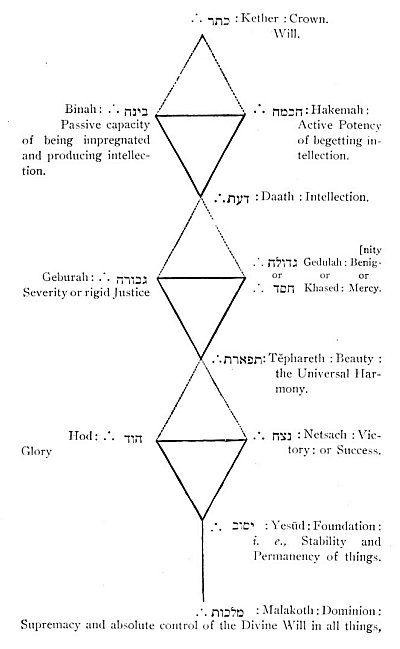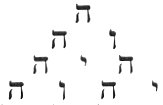Of the original revelation to mankind, of the primitive WORD of Divine TRUTH, we find clear indications and scattered traces in the sacred traditions of all the primitive Nations; traces which, when separately examined, appear like the broken remnants, the mysterious and hieroglyphic characters, of a mighty edifice that has been destroyed; and its fragments, like those of the old Temples and Palaces of Nimroud, wrought incongruously into edifices many centuries younger. And, although amid the ever-growing degeneracy of mankind, this primeval word of revelation was
p. 599
falsified by the admixture of various errors, and overlaid and obscured by numberless and manifold fictions, inextricably confused, and disfigured almost beyond the power of recognition, still a profound inquiry will discover in heathenism many luminous vestiges of primitive Truth.
For the old Heathenism had everywhere a foundation in Truth; and if we could separate that pure intuition into nature and into the simple symbols of nature, that constituted the basis of all Heathenism, from the alloy of error and the additions of fiction, those first hieroglyphic traits of the instinctive science of the first men, would be found to agree with truth and a true knowledge of nature, and to afford an image of a free, pure, comprehensive, and finished philosophy of life.
The struggle, thenceforward to be eternal, between the Divine will and the natural will in the souls of men, commenced immediately after the creation. Cain slew his brother Abel, and went forth to people parts of the earth with an impious race, forgetters and defiers of the true God. The other Descendants of the Common Father of the race intermarried with the daughters of Cain’s Descendants: and all nations preserved the remembrance of that division of the human family into the righteous and impious, in their distorted legends of the wars between the Gods, and the Giants and Titans. When, afterward, another similar division occurred, the Descendants of Seth alone preserved the true primitive religion and science, and transmitted them to posterity in the ancient symbolical character, on monuments of stone: and many nations preserved in their legendary traditions the memory of the columns of Enoch and Seth.
Then the world declined from its original happy condition and fortunate estate, into idolatry and barbarism: but all nations retained the memory of that old estate; and the poets, in those early days the only historians, commemorated the succession of the ages of gold, silver, brass, and iron.
In the lapse of those ages, the sacred tradition followed various courses among each of the most ancient nations; and from its original source, as from a common centre, its various streams flowed downward; some diffusing through favored regions of the world fertility and life; but others soon losing themselves, and being dried up in the sterile sands of human error.
After the internal and Divine WORD originally communicated
p. 600
by God to man, had become obscured; after man’s connection with his Creator had been broken, even outward language necessarily fell into disorder and confusion. The simple and Divine Truth was overlaid with various and sensual fictions, buried under illusive symbols, and at last perverted into horrible phantoms.
For in the progress of idolatry it needs came to pass, that what was originally revered as the symbol of a higher principle, became gradually confounded or identified with the object itself, and was worshipped; until this error led to a more degraded form of idolatry. The early nations received much from the primeval source of sacred tradition; but that haughty pride which seems an inherent part of human nature led each to represent these fragmentary relics of original truth as a possession peculiar to themselves; thus exaggerating their value, and their own importance, as peculiar favorites of the Deity, who had chosen them as the favored people to whom to commit these truths. To make these fragments, as far as possible, their private property, they reproduced them under peculiar forms, wrapped them up in symbols, concealed them in allegories, and invented fables to account for their own special possession of them. So that, instead of preserving in their primitive simplicity and purity these blessings of original revelation, they overlaid them with poetical ornament; and the whole wears a fabulous aspect, until by close and severe examination we discover the truth which the apparent fable contains.

Moe is the founder of GnosticWarrior.com. He is a father, husband, author, martial arts black belt, and an expert in Gnosticism, the occult, and esotericism.





